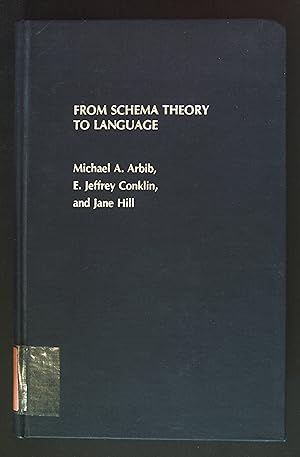Inhaltsangabe
Perspectives of neurophysiology, cognitive psychology, and artificial intelligence are here brought to bear on a study of language within the framework of schema theory. The authors propose schema theory as a unifying perspective in cognitive science. They offer three models in computational linguistics as exemplars of this approach: a 'lesionable', co-operative computational model of sentence comprehension; a model of language acquisition in a two-year-old; and a model using salience in deep generation of scene descriptions. As schema theoretic models, all three employ a co-operative control strategy suggested in part by the style of the brain, and are developed by the process of iterative refinement as the proposed mechanisms are tested against observed behaviour. All three offer a rich set of parameters and replaceable or removable modules for experimentation. Fundamental to the authors' approach is a search for commonalities between the representations and processes employed in linguistics and other cognitive domains. Readership: research workers, teachers, and advanced students in cognitive psychology, neurology, linguistics, artificial intelligence, and philosophy.
Reseña del editor
Perspectives of neurophysiology, cognitive psychology, and artificial intelligence are here brought to bear on a study of language within the framework of schema theory. The authors propose schema theory as a unifying perspective in cognitive science. They offer three models in computational linguistics as exemplars of this approach: a 'lesionable', co-operative computational model of sentence comprehension; a model of language acquisition in a two-year-old; and a model using salience in deep generation of scene descriptions. As schema theoretic models, all three employ a co-operative control strategy suggested in part by the style of the brain, and are developed by the process of iterative refinement as the proposed mechanisms are tested against observed behaviour. All three offer a rich set of parameters and replaceable or removable modules for experimentation. Fundamental to the authors' approach is a search for commonalities between the representations and processes employed in linguistics and other cognitive domains. Readership: research workers, teachers, and advanced students in cognitive psychology, neurology, linguistics, artificial intelligence, and philosophy.
„Über diesen Titel“ kann sich auf eine andere Ausgabe dieses Titels beziehen.
